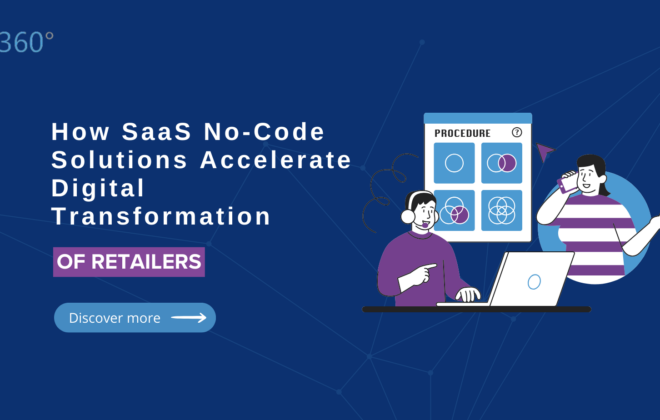The Transformative Power of AI in E-commerce: Enhancing Personalization, Customer Experience, and Business Operations
Table of Contents:
- Introduction
- The Rise of E-commerce
- AI: Revolutionizing the E-commerce Landscape
- Boosting Personalization in E-commerce
- AI-Powered Product Recommendations: Enhancing the Shopping Journey
- Harnessing Data Insights for Retail Success
- Real-World Success Stories: AI in Action
- Overcoming Challenges and Ethical Considerations
- The Future of AI in E-commerce: Trends and Innovations
- The Power of AI in Enhancing Customer Experience
- Implementing AI in Your E-commerce Business: Tools and Platforms
- Conclusion
1. Introduction
The world of e-commerce has seen remarkable growth and transformation in recent years, revolutionizing the way we shop and engage with businesses. One of the key drivers behind this transformation is the integration of Artificial Intelligence (AI) into e-commerce operations. AI has proven to be a game-changer, enabling businesses to enhance personalization, improve customer experience, and optimize their operations.
In this article, we will explore the transformative power of AI in e-commerce, highlighting its ability to enhance personalization, revolutionize product recommendations, harness data insights, and drive real-world success. We will also address the challenges and ethical considerations associated with AI implementation and discuss future trends and innovations in the field. Whether you are a thriving e-commerce giant or a budding online entrepreneur, embracing AI in your business strategy can elevate your operations and deliver exceptional shopping experiences to your customers.
2. The Rise of E-commerce
The e-commerce sector has experienced explosive growth in recent years, reshaping the retail landscape. The convenience, wide product range, and flexible payment options offered by online shopping have attracted over 2 billion digital buyers worldwide. In fact, e-commerce has become a dominant force in the retail world, with an increasing number of consumers choosing to shop online.
This rapid growth can be attributed to various factors, including the convenience of shopping from anywhere at any time, a vast array of product options, and seamless payment and delivery processes. As e-commerce continues to thrive, businesses are constantly seeking innovative ways to stand out from the competition and deliver exceptional customer experiences.
3. AI: Revolutionizing the E-commerce Landscape
At the heart of the e-commerce revolution stands Artificial Intelligence (AI). AI has transformed the way businesses operate and customers shop, infusing e-commerce platforms with unprecedented levels of sophistication and personalization. The unparalleled ability of AI to comprehend, predict, and respond to customer needs has made it an essential tool for businesses seeking to thrive in the competitive world of online retail.
AI empowers e-commerce businesses to understand their customers on an individual level, analyzing their behavior, preferences, and purchase history. This deep understanding enables businesses to tailor product recommendations, marketing strategies, and customer support, enhancing the overall shopping experience. By harnessing the power of AI, businesses can increase conversions, foster brand loyalty, and drive revenue growth.
4. Boosting Personalization in E-commerce
Personalization has emerged as a foundational concept in the e-commerce landscape. It goes beyond simply addressing customers by their names; it involves understanding their unique tastes, preferences, and shopping behaviors. AI plays a pivotal role in making personalization a reality in e-commerce.
By analyzing vast amounts of data, AI algorithms can create detailed customer profiles, highlighting individual preferences and habits. This data-driven approach enables businesses to curate tailored product offerings, personalized content, and targeted marketing campaigns. The result is a shopping experience that feels uniquely crafted for each customer, fostering a deeper sense of connection and relevance.
5. AI-Powered Product Recommendations: Enhancing the Shopping Journey
One of the most powerful applications of AI in e-commerce is the creation of highly personalized product recommendations. AI-driven recommendation engines analyze customer behavior, preferences, and purchase history to suggest products that align with individual tastes and needs. These personalized recommendations not only increase sales but also enhance the overall shopping journey.
AI algorithms continuously learn and adapt as customers interact with e-commerce platforms, ensuring that the recommendations remain relevant and up-to-date. Retail giants like Amazon have successfully harnessed the power of personalized recommendations, significantly increasing customer engagement and loyalty. As AI technology advances, product recommendations will become even more sophisticated, driving higher conversions and customer satisfaction.
6. Harnessing Data Insights for Retail Success
Data is the lifeblood of the retail industry, and AI has revolutionized data-driven decision-making in e-commerce. AI-powered tools and platforms collect, analyze, and transform vast volumes of data into invaluable insights for retailers. This data-driven approach enables businesses to optimize various aspects of their operations and drive better outcomes.
Predictive analytics, powered by AI, acts as a crystal ball for retailers, forecasting future trends and customer behavior. Retailers can leverage these insights to optimize inventory management, anticipate shifts in demand, and determine the most competitive pricing strategies. By making data-driven decisions, retailers can enhance customer satisfaction, reduce costs, and gain a competitive advantage in the ever-evolving retail landscape.
7. Real-World Success Stories: AI in Action
The transformative impact of AI in e-commerce is vividly illustrated through real-world success stories. Retail giants like Amazon, Walmart, Zara, and Netflix have leveraged AI to enhance their operations and deliver exceptional customer experiences.
Amazon, known for its personalized product recommendations, has significantly increased customer engagement and sales through AI-driven algorithms. Walmart utilizes predictive analytics to optimize its supply chain, ensuring products are available when and where customers need them. Zara employs data-driven insights to inform its inventory management and product design decisions, while Netflix uses AI-driven recommendation engines to suggest personalized content to subscribers.
These success stories highlight the power of AI in driving retail success. By harnessing data insights, optimizing operations, and delivering personalized experiences, businesses can stay ahead in the competitive e-commerce landscape.
8. Overcoming Challenges and Ethical Considerations
While AI offers immense opportunities for e-commerce, it also presents unique challenges and ethical considerations. Data privacy concerns are at the forefront, as AI algorithms rely on vast amounts of user data to provide personalization and recommendations. E-commerce businesses must prioritize robust data security measures, adhere to data protection regulations, and be transparent with customers about their data practices.
Algorithmic bias is another critical consideration, as AI algorithms learn from historical data that may contain embedded biases. E-commerce companies must actively work to identify and mitigate bias in their AI systems, promoting diversity and inclusion in data collection and algorithm development.
Building and maintaining customer trust is paramount in an AI-powered e-commerce landscape. E-commerce businesses must prioritize transparent communication, accessible customer support, and ethical AI practices to foster trust and integrity.
9. The Future of AI in E-commerce: Trends and Innovations
The future of AI in e-commerce is filled with exciting trends and innovations. Voice commerce is on the rise, with virtual assistants like Amazon’s Alexa and Google Assistant enabling customers to shop and make purchases through voice commands. AI-powered virtual try-ons are transforming the online shopping experience, allowing customers to virtually try on clothing, accessories, and even visualize furniture in their homes.
Supply chain optimization will continue to be a key focus, with predictive analytics enabling retailers to anticipate demand fluctuations, optimize inventory, and enhance operational efficiency. Enhanced customer service, driven by AI-powered chatbots and virtual assistants, will provide more intelligent and responsive support, improving customer satisfaction.
AI will also play a crucial role in fraud prevention, cybersecurity, and sustainability in e-commerce. Machine learning algorithms will help detect and prevent fraudulent activities, analyze unstructured data to identify cyber threats, and optimize shipping routes to minimize carbon footprints.
As technology continues to evolve, businesses and consumers must stay updated with the latest AI innovations to remain competitive and deliver exceptional shopping experiences.
10. The Power of AI in Enhancing Customer Experience
In the fiercely competitive landscape of e-commerce, the customer experience reigns supreme. AI has the power to enhance the customer journey in numerous ways, from personalized recommendations to efficient customer support.
Personalization, driven by AI algorithms, creates a shopping experience that feels tailored to each individual customer. By understanding their preferences and behaviors, businesses can curate product offerings, content, and marketing strategies that resonate on a personal level. This level of personalization not only increases sales but also fosters brand loyalty and customer satisfaction.
Efficient customer support, powered by AI chatbots and virtual assistants, provides instant and round-the-clock assistance. These intelligent bots can answer queries, resolve issues, and offer guidance, all while learning from each interaction to provide more accurate responses in the future.
Predictive analytics, another AI-powered capability, enables businesses to anticipate customer behavior and trends. This helps optimize inventory, adjust pricing strategies, and deliver targeted marketing campaigns, ultimately enhancing customer satisfaction and driving revenue growth.
11. Implementing AI in Your E-commerce Business: Tools and Platforms
Implementing AI in your e-commerce business is a strategic decision that requires careful planning and consideration. There are various AI tools and platforms available that can help businesses enhance their operations and deliver exceptional customer experiences.
One such tool is BigCommerce, an AI-powered e-commerce platform that offers personalized product recommendations, ensures product availability, and provides instant customer support through AI-driven chatbots. Divante is another company that specializes in AI innovations for e-commerce, offering solutions for personalized search, visual product discovery, and dynamic pricing.
When implementing AI, businesses should identify specific use cases that align with their goals and choose AI solutions tailored to their unique needs. Pragmatism is key, and businesses should prioritize affordability, expertise, and immediate value when selecting AI tools and platforms.
12. Conclusion
In conclusion, H360’s Marketplace Solution stands at the forefront of harnessing AI’s transformative potential in e-commerce, offering businesses a cutting-edge platform to leverage AI tools effectively. The dynamic landscape of e-commerce, driven by the quest for convenience and a diverse product range, demands innovative solutions, and H360 steps in as a game-changer.
The integration of AI within H360 doesn’t just promise personalization and operational optimization; it embodies a commitment to reshaping customer experiences. H360’s AI capabilities empower businesses to understand customers at a granular level, curate bespoke recommendations, and extract actionable insights from data—mirroring the successes witnessed by industry giants like Amazon, Walmart, Zara, and Netflix.
Yet, H360’s approach to AI in e-commerce extends beyond innovation—it embodies responsibility. Recognizing the ethical dilemmas surrounding data privacy and algorithmic biases, the platform ensures a conscientious navigation of these challenges, safeguarding not just business interests but also customer trust.
Looking forward, H360’s Marketplace Solution isn’t just about the present state of AI in e-commerce; it’s about embracing the future. As trends like voice commerce and augmented reality shopping shape the e-commerce landscape, H360 remains at the vanguard, equipping businesses to not just adapt but excel in delivering exceptional shopping experiences.
In essence, H360 isn’t merely a provider of AI-infused solutions; it’s an enabler of transformative experiences. By choosing H360, businesses aren’t just leveraging AI’s power; they’re forging a path toward sustained success in the ever-evolving digital realm. Embrace H360 to unlock the true potential of AI in e-commerce and drive unparalleled success in the dynamic world of online retail.
Related Posts
Leave a Reply Cancel reply
Categories
Recent Posts
- How Retail SaaS No-Code Solutions Accelerate Digital Transformation
- Unlocking Customer Loyalty: The Power of CX Personalization and CRO
- Discover how H360 marketplace solution revolutionized Fnac Tunisia’s website
- Darty.tn: Enhancing User Experience with Sylius and React JS
- Optimizing Your Store’s Search with H360 Marketplace
Recent Comments
Categories
- Non classé (3)
- Technologie (9)




